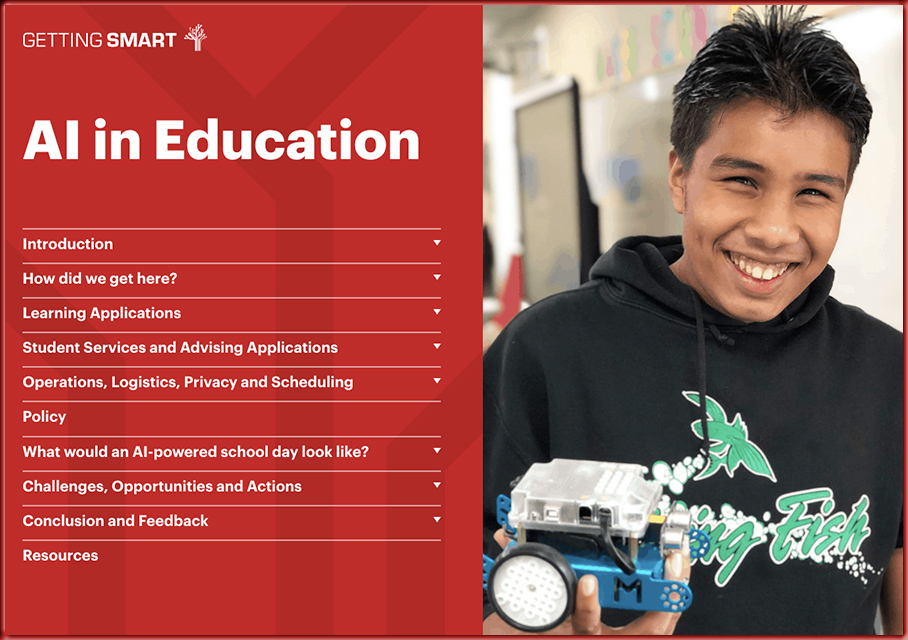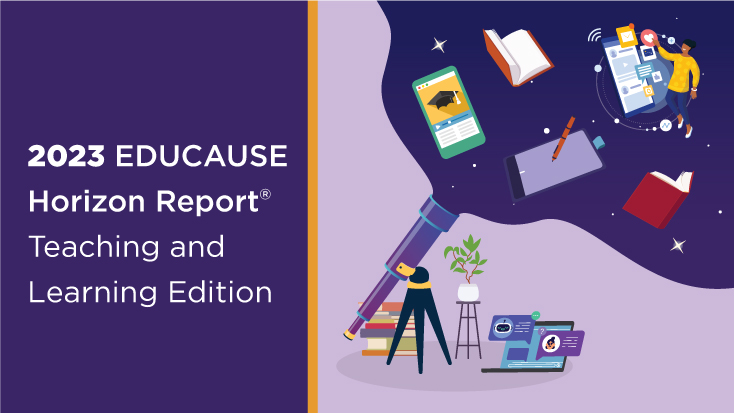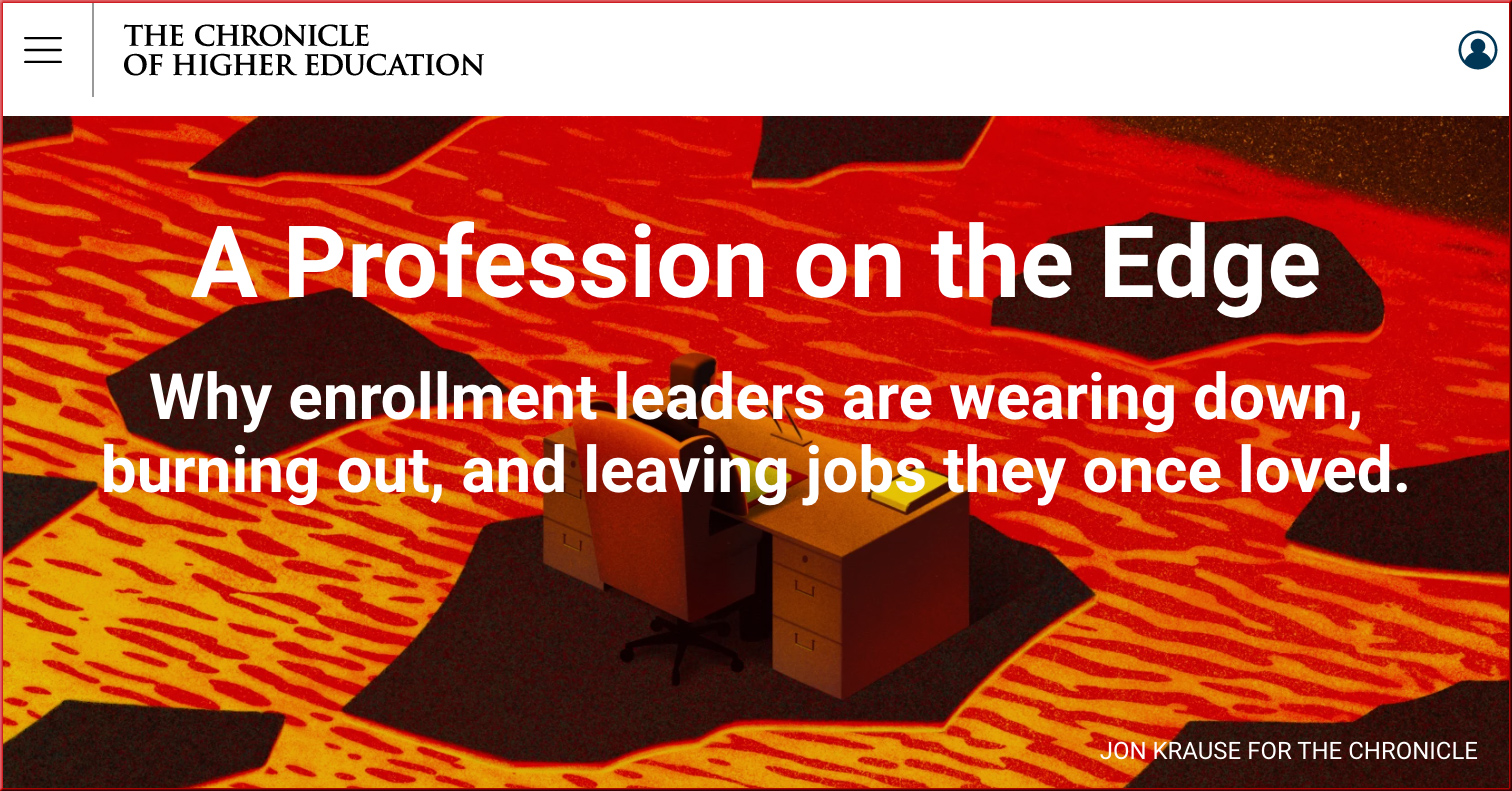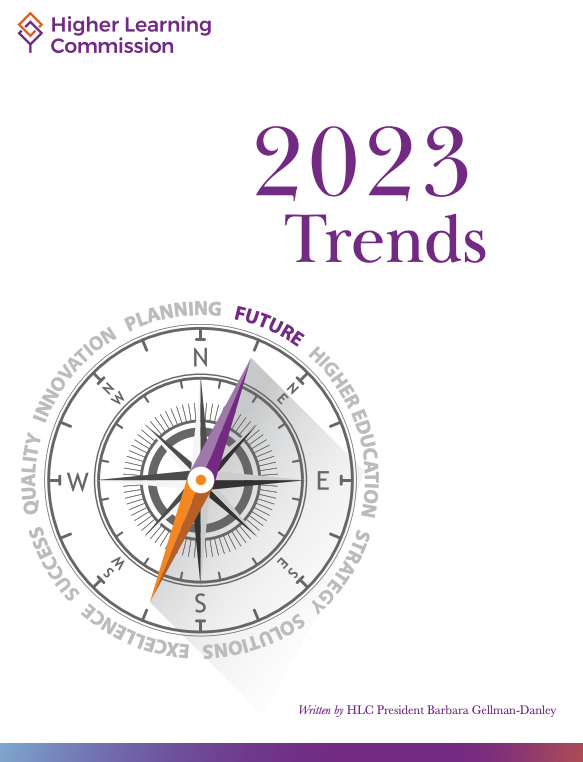Gen Z values education — but doesn’t think a four-year degree is the only option — from highereddive.com by Laura Spitalniak
Dive Brief:
- The current cohort of high school students, part of Generation Z, values postsecondary education but is increasingly interested in alternatives to four-year colleges, according to a new report from ECMC Group, a nonprofit focused on student success, and Vice Media.
- In 2023, 65% of surveyed students said they would need education beyond high school, compared to 59% pre-pandemic, the report said. But 59% said they could be successful if they don’t get a four-year degree
- Almost half, 48%, of high schoolers said their postsecondary education would ideally take three years or less, and just over a third, 35%, said it should take two years or less.
DC: #HigherEducation needs more efforts like this. We need to provide much more lifelong learning opportunities and more design thinking to create more cradle-to-grave #learningecosystems.https://t.co/Uro6XjhVm0
— Daniel Christian (he/him/his) (@dchristian5) July 7, 2023
From DSC:
And some further comments on that article:
Rather than looking to modify the traditional higher education structures for 18-year-olds fresh out of high school, the College for Adult Learners and Continuing Education will establish its own processes for the nontraditional student.
The average age of students enrolled in the Center for Distance Education is 32, and many have kids or other life responsibilities that impact their time and ability to focus on education, Seal explains.
“It’s not so much that we’re competing with other institutions [for adult learners], it’s that we’re competing with life,” Seal says. “They’re not leaving to go to another institution—they’re leaving because of life things.”
Some resources and reflections from Stephen Downes:
- Innovating Pedagogy 2023
- Paying a real living wage demonstrates commitment to higher education’s values
- Nigerian engineering students’ favorite teachers are Indian YouTubers
Online Learning Still in High Demand at Community Colleges — from insidehighered.com by Sara Weissman
Some colleges are still offering half or the majority of their classes online in response to student demand.
East Los Angeles College, the most populous campus in the California Community College system, offered 60 percent of its courses in a hybrid or online format this past spring, most of them asynchronous. Prior to the COVID-19 pandemic, fewer than a quarter of courses were offered online.
…
He said students have made their preferences clear via their enrollment trends—online course sections at the college have filled much more quickly lately than in-person courses.
Teaching: Does higher education value good teaching? — from chronicle.com by Beth McMurtrie; possible paywall but at least must have an account
Excerpt:
But the bigger question hanging over the conference was this: Do colleges actually value good teaching? On the one hand, it would seem obvious that they must. Undergraduate education is the central reason most colleges exist. How could you not value your core product?
But look below the surface and what do you see? An industry in which the majority of instructors are adjuncts who are often low-paid and unlikely to receive any sort of professional development, let alone an office in which to meet with students after class. At research universities you will find many tenure-track professors who were warned not to devote too much time to teaching before securing tenure, since scholarship is what’s rewarded. Promotion and tenure policies on many campuses, research-intensive or not, over-rely on student evaluations when it comes to judging teaching expertise or commitment. Finally, given that most doctoral programs devote a nominal amount of time to teaching students how to teach, it’s easy to see why many professors stick to how they were taught as students, whether or not those methods were effective.















